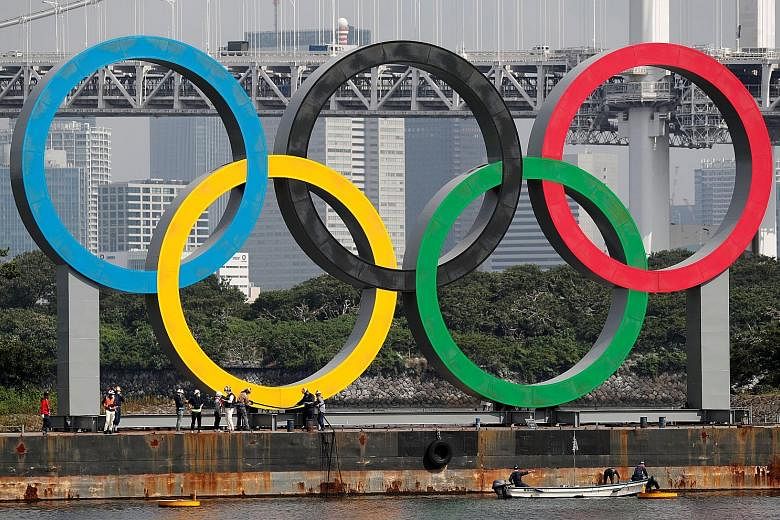TOKYO • Olympic athletes could face strict controls on their movements and repeated coronavirus tests under measures discussed yesterday by a task force charged with finding ways to safely hold the postponed Tokyo 2020 Games.
With less than a year until the Olympics, organisers and Japanese officials met for only the second time with a long list of possible requirements on the agenda.
Athletes may have to submit a detailed plan of their activities in advance - and pledge to follow it - or save their whereabouts on a "map app", according to documents prepared for the meeting, although those coming from abroad may not have to undergo the currently mandated two-week quarantine period.
They may also be required to undergo frequent coronavirus testing - including three days before leaving home, another on arrival, and others during their stay.
Japanese athletes and other participants living in Japan, such as volunteers, will face the same requirements, but all parties will be allowed to train during any quarantine period, if required.
"Tests are one of the most important issues from the two perspectives of securing safety and a sense of security for athletes," Tokyo 2020 chief executive Toshiro Muto told reporters.
"We'd like to create a system, or mechanism, to continue testing when they enter Japan."
But he admitted that ensuring the reliability of pre-departure Covid-19 testing in every country - and guaranteeing their accuracy - would be a challenge.
Other safety restrictions floated in the meeting included athletes avoiding public transport where possible and also introducing social-distancing "pedestrian traffic lanes" in venues and Olympic villages. Common spaces such as lobbies, lounges and traditional hot spring baths might also be closed to reduce social contact.
Organisers also propose to limit travel within Japan for athletes, who will be restricted to such places as towns hosting national delegations and training sites.
When asked how the rules would be enforced, Muto said it depended on which restrictions would ultimately be imposed.
He also expressed hope that deliberations with the International Olympic Committee, and other stakeholders and various international sports federations would be finalised by December, giving organisers around seven months to implement the plans before the July 23 start.
The postponement of the Games has caused all manner of logistical headaches, forcing the renegotiation of contracts with venues and hotels, and efforts to keep sponsors on board for another year.
The pandemic, which has infected more than 31.7 million people and killed about 975,000 worldwide, has also prompted hard questions about the viability of next year's Games, even as new Prime Minister Yoshihide Suga has emphasised their importance.
AGENCE FRANCE-PRESSE, REUTERS

